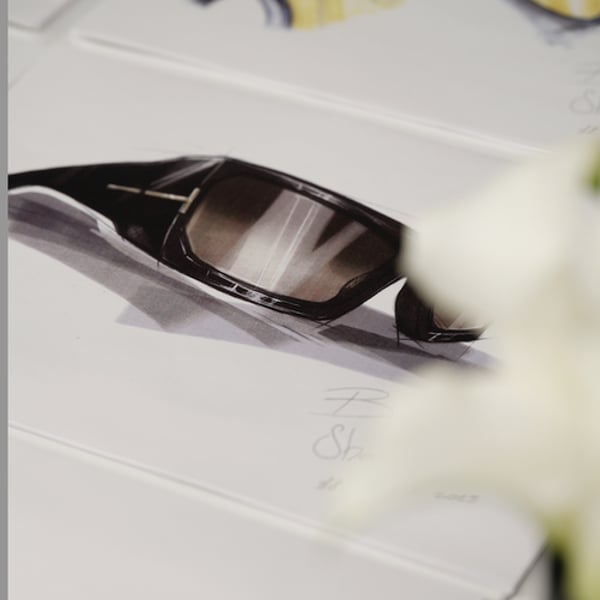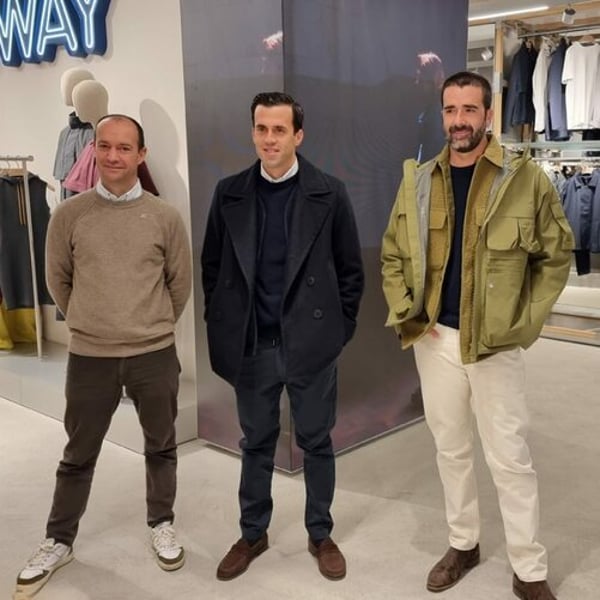By
AFP
Published
September 26, 2025
Most Nigerian leather, often semi-finished, is exported to Europe and Asia and turned into luxury items bearing international brand labels, with zero trace of its origins.

However, with her homegrown brand, Isi Omiyi creates high-end pieces aimed at reclaiming Nigeria’s leather identity.
In her apartment in the Lagos metropolis, she has created a boutique corner where bags, wallets and shoes are carefully displayed on shelves — some carrying price tags of up to $1,500.
“Leather is part of our heritage. I can’t just stand by and watch others receive all the credit for work that we started here,” the 56-year-old designer told AFP.
Her mission is to amplify “Made in Nigeria” craftsmanship.
She “would like these foreign brands to indicate on their products: ‘originally from Nigeria’ and ‘made in Italy,’ ‘made in France,’ or elsewhere, because most of them don’t,” Omiyi said.
According to the country’s export promotion agency, Nigeria exports 90% of its leather, primarily to Italy and Spain, which together account for around three-quarters of the total volume.
Leather exports generate about $600 million in annual revenue, said Oluwole Oyekunle, a researcher at the Nigerian Institute of Leather and Science Technology in Samaru, in northern Kaduna state.
Kano, cradle of tanneries
In Kano, a state in northern Nigeria, major international luxury brands source leather through intermediaries, who link them with tanners.
The state counts 11 tanneries.
Ztannery, operational since 2010, takes daily delivery of dozens of fresh goat and sheep hides from across Nigeria and neighboring countries. They are sorted and treated over a period of nine days.
“We process from zero to semi-finished leather, which is 80% of the whole process,” said company owner Abbas Hassan Zein, 47.
Intermediaries ship the hides to Europe, where they undergo further treatment before being sold to luxury brands like “Gucci, Ferragamo, Prada, Louis Vuitton — all the big names,” Zein added.
“And this is where the process goes from ‘Made in Nigeria,’ and the balance 10% of the finished leather is lost and becomes ‘Made in Italy’ or ‘Made in China,’” he added.
Modern tanneries with state-of-the-art machinery, such as Ztannery, only accept large orders paid in dollars or euros, thereby cutting off access for local designers who would prefer to pay in their local currency.
Many turn to the traditional Majema tannery, founded in 1932 in the heart of Kano city.
Here, everything is done manually. Dozens of tanners clean and dye hides directly on the earthen floor amid plastic bags and bottles.
“Our customers come from the north and south, and we also export to neighboring countries such as Niger, Cameroon, Chad, Cotonou (Benin), and Europe,” said tannery manager Mustapha Umar, 52, standing in front of goat hides hanging from wires, waiting to be dyed the next day.
‘Expression of heritage’
In 2017, Femi Olayebi, founder of the Nigerian brand FemiHandbags, created the Lagos Leather Fair — an annual event that brings together approximately 100 leather professionals in Nigeria’s commercial hub.
“There was a need for a platform dedicated to designers, products, and leather suppliers, demonstrating that Nigerians, with their own resources, are capable of creating items that are worth purchasing,” said Olayebi.
Public and private ventures are growing in the sector in Africa’s most populous country.
In Kano, Indian, Chinese, and some European producers — not necessarily from the big-name labels — “have started showing interest in coming here to do the manufacturing,” said Tijjani Sule Garo, of GB Tannery, a family business spanning three generations.
In August, the Lagos state government launched a leather goods factory in the Mushin neighborhood, aiming to create 10,000 jobs. The site is located near one of the country’s largest leather markets.
To compete against global leather industry giants, Olayebi stresses the need for “better machines, better access to high-quality Nigerian leather, and above all, better training.”
For David Lawal, 26, a brand executive at Morin.O, it all boils down to promoting a Nigerian identity.
Many customers seek a “timeless expression of heritage,” narrated through leather products created in Nigeria and crafted by Nigerians, said Lawal.
Copyright © 2025 AFP. All rights reserved. All information displayed in this section (dispatches, photographs, logos) are protected by intellectual property rights owned by Agence France-Presse. As a consequence you may not copy, reproduce, modify, transmit, publish, display or in any way commercially exploit any of the contents of this section without the prior written consent of Agence France-Presses.







